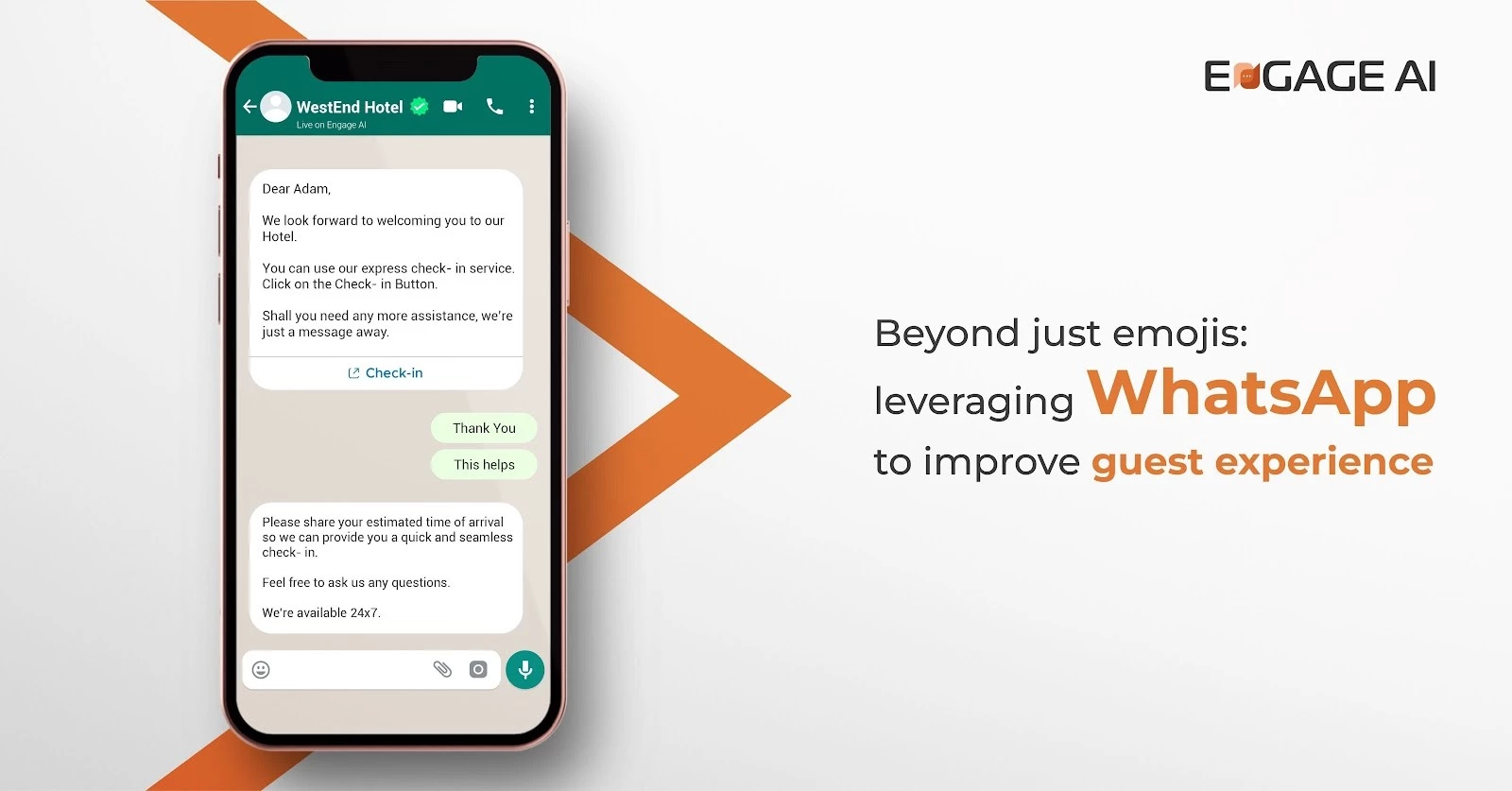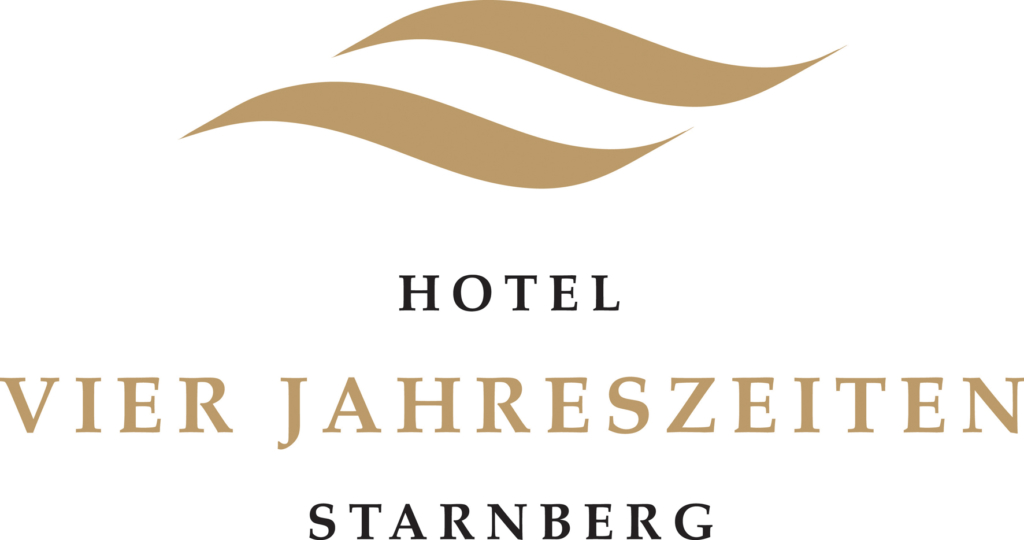Launched in 2009, WhatsApp was initially conceptualized as a way to update people on a person’s status. Like “Battery low” or “On a call”. But as time has ticked on, WhatsApp has evolved from just updates to becoming an industry leader, revolutionizing digital communication worldwide, enabling not only personal connections but also offering hotels an avenue to effortlessly integrate into their guests’ daily lives – if done smartly.
It is natural to be cautious of using WhatsApp to engage with hotel guests, given that it’s a very personal space. But a good rule of thumb is to only carry on the conversation beyond the first outgoing message once the guest responds. A response indicates that they are open to communicating through WhatsApp.
With 2 billion people using WhatsApp every month to communicate with loved ones, friends, colleagues, and, as of recent, brands
This has become an important tool for the hospitality industry. Add to this, WhatsApp launching a B2B initiative, and this platform should be in every hospitality leader’s business plans.
4 ways WhatsApp enhances guest experiences for hotels
Before deep diving into how hotels can use WhatsApp, it’s important to understand just how far reaching the act of using this simple tool can be.
- Beyond the usual: A new avenue to upsell services and stay in touch with guestsThe rise of conversational marketing and AI means WhatsApp is the perfect playground for hotels to upsell their services and promote the hotel through promotions, reminders, etc. With the right strategy, this can take on the role of a virtual concierge to provide personalized service. The messaging channel is the perfect medium for hotels who care about delivering a more personal, real, and emotionally-impactful guest experience.
- Remote access to the front office: A quick and pain free way to provide updates, solve queries and moreGuest communication becomes more challenging while they are traveling because they are constantly on the go and may not always check their email or pick up the phone. But messaging apps are a whole different game. Over 90% of WhatsApp messages are opened, and the number is shown to be even higher in a few studies.Accessing hotel information and getting their questions solved can happen through a simple text wherever they are. It’s also possible to automate responses to FAQs so the front office isn’t inundated with calls for simple responses. Even when a landline is inaccessible, this is a great way to stay connected. Communication becomes easier, faster and more effective.
- Early warnings: Collect real-time feedback and map guest sentimentsOne of the major impacts WhatsApp (with the right AI tool) can have is a way to pre-emptively anticipate guests’ problems based on the negative or positive words that are used. This, again, is an AI powered addition that could improve the guest experience and reduce hassles for the hotel. There’s a log of guest emotions that is automatically saved. 70% of guests prefer to communicate via text, which means that enabling WhatsApp and using these AI tools would be transformational for business experiences.Even after check-out, it’s a great tool to remind guests to leave reviews and rate their stay, which can help improve hotel services for the next guest and boost reviews on hotel review sites.
- Make them feel seen: Add a personal touch to your hotelMost hoteliers know just how far a personal touch can go in improving the guest experience. Hotels need to have a human appeal and a personality that helps guests connect with them at a human level, thus establishing a more loyal base of guests.Using a space as personal as WhatsApp with the right conversational marketing is a great way to establish rapport and build the right relationship without an extremely high investment.
The real life implications: Touchpoints WhatsApp can reach
Integrating WhatsApp isn’t just about confirming their check-in times or bills. It’s a tool that can be integrated in different touchpoints of the guest journey to not only provide information but also promote a personal relationship.

Before guest arrival
Yes, WhatsApp communication must start even before guests arrive.
- Manage confirmations and updatesProvide any crucial information for the arriving guests, such as updates on traffic, check-in times etc. Informed guests can help the hotel operate more efficiently too.
- Send quotes or offers for their stayUpsell services by giving guests a taste of what they could get at the hotel. Offer any vouchers and send reminders about events happening in the hotel.
During the guest stay
- Send a welcome messageIn addition to making them feel special and appreciated, this is also helpful to give them information about services they can use, such as the WIFI password, swimming pool hours etc.
- Handle queries in real timePrompt communication helps defuse potentially stressful situations and prevents complaints.
After the stay
- Request a reviewThis will increase your visibility and help you establish a good reputation.
- Offer a coupon or discountOffer discounts on their subsequent stay to nurture brand loyalty. Adding offers for their birthdays or anniversaries is also a great way to build a relationship.
WhatsApp is now an extremely important tool in a hotel leader’s arsenal in creating better experiences. It’s important to remember that in the digital-first world we live in, messaging apps like WhatsApp are no longer only for personal purposes. They’ve become a convenient point of contact that could not only help hotels but also optimize guest experiences.
The hotel industry is increasingly employing conversational AI and robotic automation technologies, but there’s still a huge ground to cover. It has huge potential but is underpenetrated.
Engage-AI is RateGain’s Virtual Assistant Conversational AI platform which helps optimize your hotel’s operations, create upsell opportunities and generate more revenue per guest, ultimately enhancing guest experience and increasing satisfaction scores for the hotel.
For an in-depth guide on Engage-AI or to schedule a free demo, get in touch with our experts “here”
 Deutsch
Deutsch Português
Português Italiano
Italiano Espanol
Espanol čeština
čeština ไทย
ไทย Français
Français


